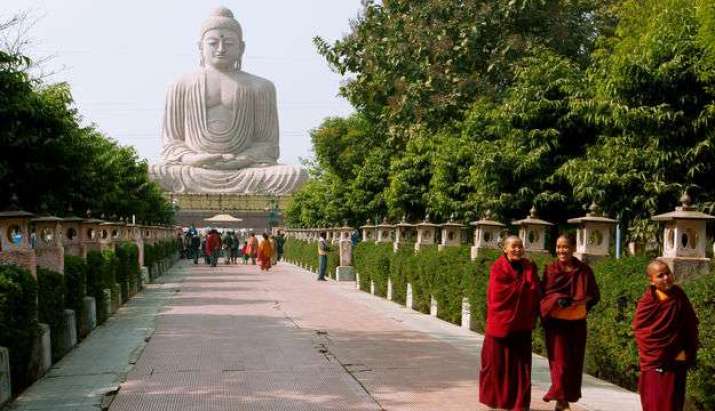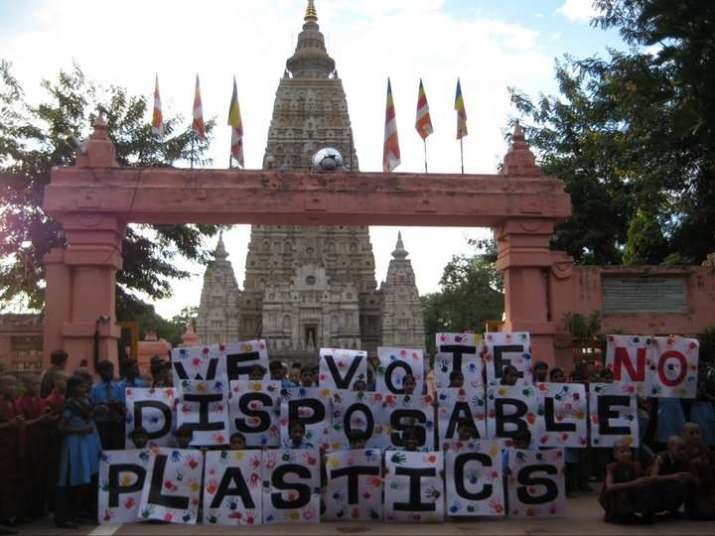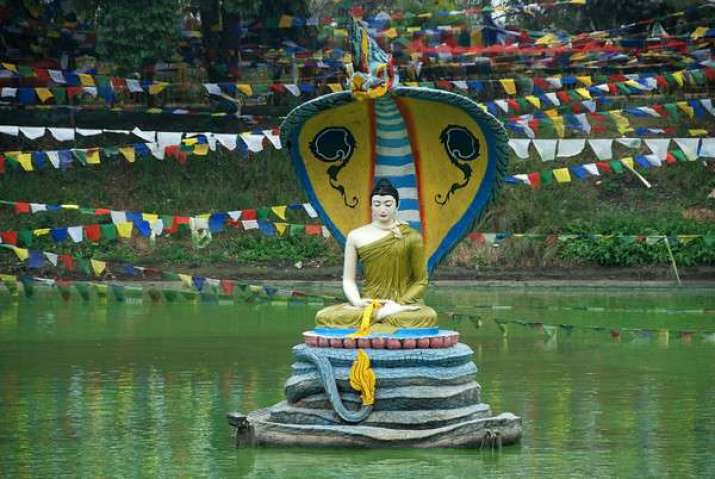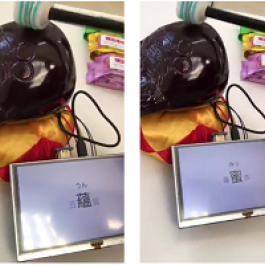
On 23 July, Patna High Court, the high court of the Indian state of Bihar, has instructed the Gaya District administration to announce Bodh Gaya a plastic-free zone and ordered Bihar State government to take action against the pollution caused by polythene bags, after local news reports revealed the level of plastic pollution in Muchalinda Lake.
The court also emphasized the importance of public awareness about the plastic pollution issue in the state: “There is not a single street where vegetables and fruits are not sold in plastic bags. It is not only the state government that is responsible for the menace of pollution by polythene bags, the public should also be made aware about the harmful effects of their use.” (The Telegraph India)
Prior to the court’s ruling, Abhishek Singh, Gaya District magistrate and Bodhgaya Temple Management Committee ex officio chairman, informed the court that the use of plastic products has been banned within Bodh Gaya, and that a 500-rupee penalty would be imposed on any visitor found violating the ban. The penalty fees will be deposited in the shrine account.

Bodh Gaya is Bihar’s holiest Buddhist site and is the place where the Maha Bodhi Temple, a UNESCO World Heritage Site, is located. The sacred Bodhi tree, under which the Buddha is said to have attained enlightenment, is located just behind the Maha Bodhi Temple. It is a popular site among both tourists and pilgrims, who come from all over the world to visit, but this popularity has had a significant impact on the temple’s surroundings, most notably on Muchalinda Lake.
Muchalinda Lake is named after a snake king, naga, named Mucalinda who protected the Buddha from a storm. It is believed that during the seven weeks that the Buddha meditated after attaining enlightenment, the sky darkened and torrential rains descended. When the rains threatened the Buddha, the snake king came forth and protected the Buddha from the elements by spreading its hood over the Buddha’s head. Muchalinda Lake is located on the right side of Maha Bodhi Temple and features a statue in its center depicting the story.
Recently, local news reports are drawing attention to the plastic pollution threatening this historic lake. According to The Times of India, most plastic products taken inside the Maha Bodhi Temple complex end up in the pond. Many visitors, for instance, buy rice and bread from shops near the site to feed the fish in the lake. These products are packaged in plastic and the bags are often thrown in the pond with the feed, leading to pollution that is now threatening the pond life.

According to The Telegraph India, there is currently no proper policy for the collection and disposal of plastic bags in Bihar, allowing polythene bags to clog drains and threaten livestock and wildlife. The two-judge bench of Patna High Court addressing the issue has listed the case for a further hearing on 27 August. Hopefully the Bihar State Pollution Control Board (BSPCB) will have taken steps to curb the pollution at in the state, as per the court order.
Muchalinda Lake is not the only body of water receiving protection from a high court in India. Last year, the high court of Uttarakhand accorded the Ganges and Yamuna—two of India’s holiest rivers—the status of living entities, granting them the same legal rights as people, in an attempt to protect the waterways from further pollution.*
And plastic is unfortunately not the only type of pollution threatening Buddhist holy sites. Last year, scientists and government officials in Nepal warned that Lumbini, the birthplace of the Buddha, is under serious threat from air pollution. Data for January 2017 indicated that the Buddhist pilgrimage site had the highest concentration of fine particulate matter in the country for that month, which has been attributed to rapid industrialization in areas surrounding the sacred site.**
* Indian High Court Declares Ganges, Yamuna Rivers “Living Entities” in Effort to Push Conservation (Buddhistdoor Global)
** Air Pollution Levels Threaten Birthplace of the Buddha (Buddhistdoor Global)
See more
HC For Bodhgaya Plastic-free Zone (The Telegraph India)
500 fine for violation of plastic ban (The Times of India)
Hearing in high court on polythene ban today (The Times of India)
‘Some Bold, Effective Decisions Should Be Taken’; Patna HC Moots For ‘Plastic Free Bihar’, Calls For State’s Views (Live Law India)











